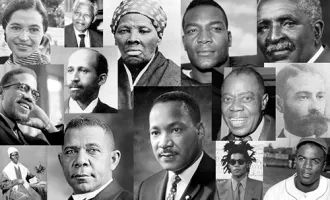
Photo by Sincerely Media on Unsplash
This Date in UCSF History: We Need Affirmative Action
Originally published on November 13, 1997.
Last week the United States Supreme Court ruled that it would not hear a challenge to Proposition 209, the California anti-affirmative action campaign to dismantle race- and gender-based programs in public hiring, contracting, and school admissions.
The Supreme Court has not ruled on its constitutionality, though the decision establishes that the initiative is now law.
Since the passing of 209, a few encounters have left me even more convinced of the need for affirmative action. Earlier this year, I spent a night riding in an ambulance during a clinical rotation. Late into the night we responded to a call by a woman who had been the victim of domestic violence.
Her face showed the horrors of the cruelty of her partner. A woman police officer was counseling her to seek help and to file charges.
I was deeply impressed by the interaction between the female officer and the victim. I doubt that even the most sensitive of male officers would have been able to relate to her under the circumstances. Affirmative action programs have played an important role in bringing more women like the officer I was observing onto the police force.
Recently I attended a hearing of the Managed Risk Medical Insurance Board (MRMIB) in Sacramento. Members were selecting an advisory committee for a program called Healthy Families, which funds health insurance for poor children.
Healthy Families would affect close to half a million poor Californians: rural and urban, white, Latino, African-American, Asian, Native American. And Clifford Allenby, the chairman of MRMIB and an appointee of Governor Pete Wilson, stated that the advisory board should reflect the diversity of the state’s population.
What hypocrisy! The governor pushed to have Proposition 209 passed to prohibit race and gender-based preferences in state and local programs.
Yet here was one of his appointees acknowledging that race was a factor to be considered in creating an advisory panel.
It became even more clear to me that Proposition 209 and other anti-affirmative action campaigns at the University of California were just so much political gerrymandering.
They were orchestrated to capitalize on racial tensions, in an unsuccessful attempt to propel Pete Wilson towards the presidency.
The reality is that in a state as diverse as ours, a panel of rich white guys is unlikely to create a program that will help half a million poor Californians.
Even if they decide it’s in their interests to do so, differences in language, culture, perspective and education will complicate the implementation of any program.
An advisory panel reflecting the state’s diverse mix is much better suited to create a program to which the intended recipients can relate.
Creating a program without considering the needs of the many different communities in California is no different than sending blacks to the back of the bus in Alabama.
Essentially, people who speak English well and understand middle class culture will reap most of the benefits.
Those who do not understand the culture will continue to be left behind.
What angers me is how blatantly Proposition 209 manipulated the fears of many Californians to create a law which is so detrimental to our state’s future.
Since the passage of 209, minority applications to medical schools have dropped by almost 20% in California, Texas, Mississippi, and Louisiana, according to a report released last week by the American Association of Medical Colleges.
The report further suggested that the climate surrounding Proposition 209 has compelled minorities to drop out of the applicant pool for medical school. And we’ve all read in recent months about the precipitous drop in minority enrollment at Boalt Hall, UC Berkeley’s law school.
Advisory panels of the future will depend on participation from leaders from different communities, yet Proposition 209 limits the ability of the state to recruit and create these leaders. Our hands are tied. How can we proceed?



